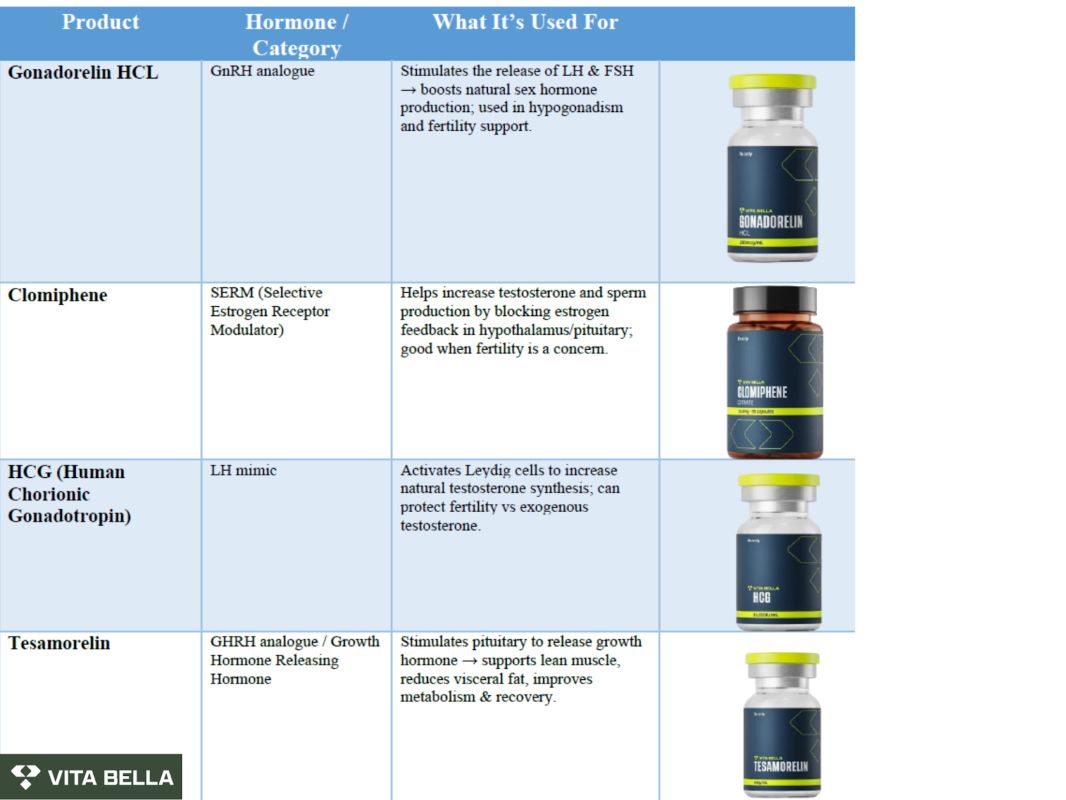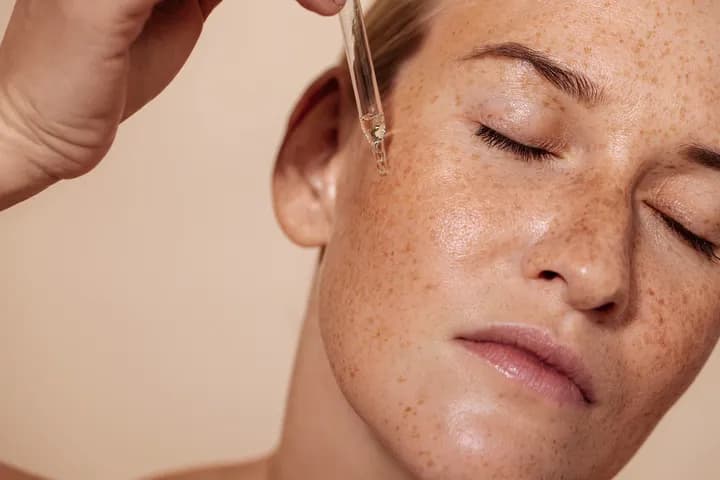Struggling with fatigue, restless nights, or mood swings? Hormone imbalances might be the silent culprit. Behind these everyday struggles lies a finely tuned system. Hormones 1 are chemical messengers that regulate body rhythms, directly influencing energy, sleep, and mood.
Hormones influence everything: from strength, sleep, and emotional health. Vita Bella’s premium supplements support healthy testosterone levels, giving you the balance and confidence you need to thrive.
Hormones That Impact Energy, Mood & Sleep
Cortisol peaks in the morning to promote alertness and gradually declines throughout the day, but chronic stress can disrupt this rhythm, causing fatigue and mood instability 2.
Melatonin rises at night, preparing the body for restful sleep 3, while artificial light or stress can suppress its secretion and disturb circadian cycles.
Neurotransmitter-linked hormones such as serotonin and thyroid hormones also shape emotional balance and metabolism; imbalances often result in low energy 2, poor sleep quality, and depressive symptoms.
Together, these hormonal interactions highlight the critical link between balanced hormones 1, stable mood, restorative sleep, and sustained energy.
Testosterone, hormone that influences Energy & Mood
Testosterone plays a crucial role in maintaining muscle strength, bone density, and energy 4 ; lower levels are associated with fatigue and loss of lean mass. It significantly influences mood regulation: systematic reviews show that testosterone replacement can reduce symptoms of depression, irritability, and low motivation in men with hypogonadism or low-normal levels.
In conditions of energy deficit (e.g., military training combined with restricted calories), administration of testosterone enanthate mitigates muscle loss and has been explored for its effects on mood, cognition 5, and risk-taking, although behavioral outcomes are mixed.
Declines in testosterone with age or stress contribute to lower energy reserves, reduced motivation, and poorer sleep 6, highlighting its systemic impact beyond just sexual health.
Signs of Low Testosterone That Affect Daily Life
The following are the common signs that indicate you are suffering from low testosterone:
Chronic fatigue 7 despite rest: Up to 35–40% of hypogonadal men report persistent fatigue even after adequate sleep.
Decreased muscle mass and strength: Low testosterone can cause a 10–15% reduction in lean body mass, leading to measurable declines in strength and endurance.
Mood swings & low motivation: Around 20–30% of affected men experience irritability, depressive symptoms 8, or reduced drive.
Sleep disturbances: Testosterone deficiency is linked with fragmented sleep 9 and reduced REM cycles, further worsening fatigue.
Need for Testosterone for Sleep, Recovery, and Quality of Life
Deep sleep (especially slow-wave sleep) is essential for testosterone production: studies 10 show that plasma testosterone rises significantly during sleep, but this increase depends on getting at least 3 hours of typical sleep architecture.
Sleep disorders or disruptions, such as short sleep duration 11 or poor sleep quality, are strongly linked with reduced testosterone levels, mood disturbances, and reduced energy and thus affect quality of life.
Experimental data 12 show that restricting sleep to about 5 hours per night for one week in otherwise healthy young men can lower testosterone by 10-15%, increasing fatigue, sleeplessness, and reducing the body’s anabolic (muscle/recovery) capacity.
Don’t Just Survive, thrive with Vita Bella’s Hormone Support.
Low testosterone can leave you drained, moody, and struggling with poor recovery after workouts. These everyday challenges silently erode your performance and confidence. Vita Bella’s testosterone-supporting supplements restore balance, boost energy, and help you feel stronger both in the gym and in daily life.

FAQs
1. How does low testosterone affect daily energy and mood?
Low testosterone can cause constant fatigue, irritability, mood swings, and reduced motivation. It impacts sleep quality too, making recovery harder and lowering overall performance.
2. Can lifestyle changes alone fix hormone-related issues?
Healthy sleep, diet, exercise, and stress management can improve hormone balance, but some men may still struggle with low testosterone. That’s where natural support like Vita Bella’s supplements can help.
3. How can Vita Bella products support hormonal balance?
Yes. Vita Bella’s science-driven supplements are designed to naturally support testosterone levels, boost energy, improve sleep quality, and restore focus, helping you feel balanced and strong every day.





















